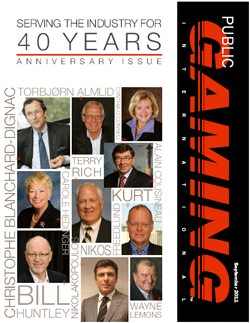| |
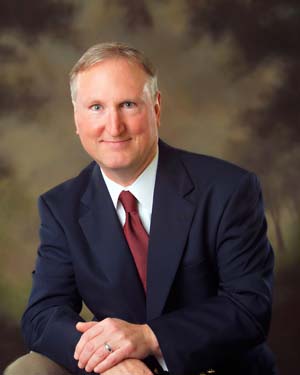 Paul’s
Wall Paul’s
Wall
October 31
Congratulations to Team NASPL and the
Hoosier Lottery for delivering the very best
NASPL conference and trade-show experience.
It really did exceed expectations in every
respect. Attendance was not only fantastic;
this was a fully engaged community of
industry leaders who are chomping at the bit
to make a difference.
And it
is a good and timely thing that they are so
engaged because the road ahead is not a
‘stay-the-course’ journey.
In some vital ways, the course we are on is
not looking bright for Lottery stakeholders
right now. We
have it within our grasp to change course
but we have to demonstrate the will to do
it. Jeff Anderson (Director Idaho and
immediate past president of NASPL) and
Gordon Medenica (Director New York and
president of NASPL) delivered powerful
‘call-to-action’ speeches. It may sound like
melodramatic hyperbole, but this is a
make-or-break year in which the community of
NASPL members has the opportunity to
mobilize and take action to defend the
interests of its stakeholders. Our
leadership has shown the integrity needed to
do it. It is now up to all of us to support
them with all our heart, because they can
not do it alone. In fact, they can not do it
without the support of each and every
lottery. This is not about i-gaming. It’s
about defending the rights of states against
those of very wealthy and politically
powerful commercial interests who are
attempting to cheat states out of their
claim to regulate and tax the gaming and
gambling industry. If we can act as one,
Team Lottery will prevail for the simple
reason that this is still a country that
values right over wrong, good over evil.
The
problem is that the regulatory and taxation
framework for internet gaming is being
formed right now, at both the federal and
state levels, and lotteries do not have a
seat at the table. The solution is for
lottery directors to make sure that their
state legislators are fully informed about
all the implications of different regulatory
and taxation structures. As one director so
aptly put it, “If not now, when? If not us,
who?” There is nobody else who is positioned
to defend the interests of lottery
stakeholders. So I framed the question
rather starkly: Is it the job of lottery
directors to stick their neck out to push a
states’ rights agenda onto the radar of
their legislators? The answer came back a
resounding yes. It is the
job of the lottery director to defend the
interests of Lottery stakeholders. Those
interests are being assaulted by huge
lobbying efforts that if allowed to take
root will have an absolutely devastating
impact on lotteries. Our legislators are
being barraged with disinformation from
these opposing forces. It is a question of
integrity. We owe it to those legislators,
to the in-state interests that those
legislators represent, and to our own
lottery stakeholders, to make sure those
legislators understand what is at stake and
why it is so vital that they take action now
to defeat efforts to cheat states out of the
massive tax receipts to accrue from the
Internet gaming business.
Lottery directors do “serve at the pleasure
of the governor”. Even so, now that we are
in a crisis, the leadership of the Lottery
is thankfully stepping up to take ownership
for a problem that has no solution without
their bold action. The actions required take
us into the political arena and subject us
to the challenge of a politically
adversarial environment. But never has there
been a more clear-cut case of right against
wrong and for the actions of one chosen
group of people, the U.S. state lottery
directors, to have such a decisive impact on
the course of a $60 billion dollar industry.
There
are at least two big threats. One, the Harry
Reid coalition would channel the economic
benefits to Big Casino interests in Nevada
and New Jersey (by requiring that i-gaming
licenses go to land-based casinos of a
certain size and length of time in
business). The other is that Tribal Gaming
interests are lobbying hard for the right to
export Internet gaming off of their
reservation lands. This is especially
galling given the way they have abused the
notion of Indian sovereignty to transform
the entire country into a giant casino
gambling destination that takes shameless
advantage of ‘sovereignty’ to pillage state
coffers. States need to prevent Tribal
gaming interests from doing to the online
gaming world what they did to the casino
gambling world. In the online i-gaming
world, even the smallest competitive
advantage is decisive. Paying less taxes, as
the Tribal gaming interests insist is their
right, constitutes a competitive advantage
that would completely disenfranchise state
lotteries and, for that matter, any other
state initiative to channel the benefits
over to the consumers who are actually
playing the games. Under the leadership of
Director Anderson, NASPL sent to
members of Congress a position paper in
defense of states’ rights as regards to
i-gaming regulatory and taxation policy.
Maryland Governor O’Malley went very
public with a protest against what he terms
the “federalization” of poker and casino
gambling regulations. And now in his
commencement speech, NASPL President
Gordon Medenica made a bold statement
as to the role and the purpose that NASPL
should serve in defense of the stakeholders
of all its members.
My
blog and attached article last week
(click
here to read) attempts to quantify
the impact of regulatory change on
lotteries. I received lots of feedback that
really fell into two buckets. One, we need
that kind of concrete data to enable our
advocates to put up a defense of states’
rights. And we need more of it. The other
comments were to the effect that the impact
as measured by that analysis grossly
understated the actual impact that i-gaming
will have on state lotteries. I could not
agree more. The specific migration of
lottery spend over to non-lottery i-gaming
was calculated to result in a reduction of
8% or 9% in funds available to transfer over
to lottery beneficiaries. Big as that is, it
is nothing as compared to the long-run
impact on lotteries if others are given a
leg-up in the i-gaming space. This fact was
illustrated in a presentation by Team
Facebook at the NASPL conference. It is not
about i-poker or the revenue streams of any
particular i-games. It is about controlling
the social-networking space, and that
includes the games people play online. Team
Facebook was there at NASPL because they see
that lotteries are in the ideal position to
take control of the social networking space
that surrounds games and gaming. And they
want to help us take full advantage of this
window of opportunity. But it is just that,
a window of opportunity that someone will
move into with a bold vision to leverage a
social-networking agenda into a powerful
competitive advantage. The Big Casino
interests hope to be that someone, they do
have such a vision, and are moving apace to
implement it. It is now incumbent upon Team
Lottery to act quickly to give our
legislators an alternative to turning this
industry over to anti-state interests.
The
migration of lottery spend over to i-gaming
does represent a measurable impact to
lottery. $1.4 billion in funds transferred
to lottery beneficiaries is a loss that
would devastate the Good Causes supported by
lotteries. But there is much more at stake –
really the heart and soul of the industry.
And a financial impact that would far exceed
$1.4 billion. To cede that over to anyone
other than the true owners of in-state
gaming and gambling, which is the people of
each individual state, would be a travesty.
We
send out an electronic newsletter four times
a week, dubbed the PGRI Daily News Digest.
Please visit
www.PublicGaming.com
or e-mail
Sjason@PublicGaming.com
to be put on the distribution list. It’s
free. Too, visit
www.PGRItalks.com
to see video-recorded panel discussions and
presentations by our industry leaders. Thank
you all for your support. We depend upon it
and are dedicated to working hard to earn
it. I welcome your feedback, comments, or
criticisms. Please feel free to e-mail me at
pjason@publicgaming.com.
|
|
|
|

NASPL TRADE SHOW Photos Indianapolis
CLICK here to see photos of the NASPL Trade Show Day 1 October 25, 2011
Click here to see photos of the NASPL Trade Show Day 2 October 26, 2011 Proponents of Internet poker legalization gained a high-profile ally Billionaire real estate developer Donald Trump partners with a New York hedge fund
The North American Association of State and Provincial Lotteries, which represents 52 lottery organizations, issued a resolution opposing federal legalization of Internet poker as encroachment on a state's right to regulate its own gambling system. |

Online gambling would hurt slots revenue
"In Maryland, for example, federalized poker and casino gambling would put at risk the $19 million annually we generate from our state Lottery -- our state's fourth largest source of revenue -- and jeopardize the jobs and survival of lottery retailers, many of which are small businesses," wrote Gov. Martin O'Malley in a letter to the chair members of the super committee. "It would also jeopardize the dollars for K-12 public education, community colleges, and four-year colleges and universities that are generated by new slots locations in our state." |

New York's First Casino, at Aqueduct Racetrack filled to capacity on opening night; 5000 people waited
Gordon Medenica, director of the New York Lottery, espoused the casino's contribution to state funds. "This facility will probably increase our video lottery income by 50%," Medenica said. Video lottery is the organization's fastest-growing source of income, he said. |

Carole Hedinger, Executive Director of the New Jersey State Lottery, has been named Region I Director of NASPL
|
“I am honored to be elected the Region I Director at NASPL,” she said. “This Region encompasses 12 lottery organizations, including New Jersey, and I look forward to representing New Jersey Lottery along with our regional neighbors.” |
Indian Tribes Want Their Share of Online Poker Legalization
|
HR2366, the bill proposed by Rep. Joe Barton (R-TX) to legalize online poker, gives individual states regulatory power and leans toward brick and mortar U.S. casinos getting the first crack at licensing. Companies providing online poker services in say, Nevada, would be allowed to accept wagers from players in other states where internet gaming is also legal. Tribal gaming interests are concerned that the proposed regulation would be in direct violation of the Indian Gaming Regulatory Act (IGRA) of 1988. |

NH House panel backs legalizing video lottery
Firms Plan Out Actions Anticipating US Legalization of Online ...
ECJ Opinion Hailed by Online Gambling Industry
PGRI Award Ceremonies October 25, 2011
|
L OTTERY INDUSTRY HALL OF FAME CEREMONY NASPL Indianapolis October 25, 2011
Inductees:
John Musgrave, Director of the West Virginia Lottery Jaymin Patel, President and Chief Executive Officer of
GTECH Corporation Carla Schaefer, Vice-President of International development for Scientific Games Corp. 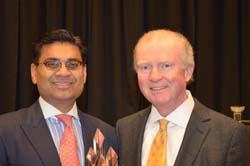 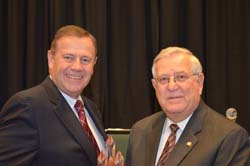
L-R Jaymin Patel, CEO, GTECH Corporation inducted into the Lottery Industry Hall of Fame, Don Sweitzer, Chairman of GTECH Corporation speaking for Jaymin. Gerry Aubin, Executive Director of the Rhode Island Lottery speaking for John Musgrave, Executive Director of the West Virginia Lottery, who was inducted into the Lottery Industry Hall of Fame. 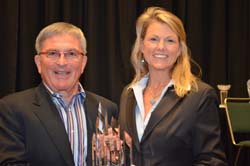 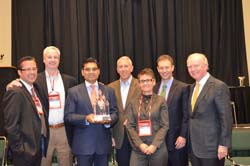
L-R Steve Saferin , Founder of MDI; Chief Creative Officer, Scientific Games Corp., speaking for Carla Schaefer, Vice-President of International development for Scientific Games Corp. who was inducted into the Lottery Industry Hall of Fame. Members of GTECH Corporation on hand to congratulate Jaymin Patel newly inducted into the Lottery Industry Hall of Fame.
CLICK here to see the membership of the Lottery Industry Hall of Fame LOTTERY INDUSTRY STATESMAN AWARD Ceremony
Honoring Clint Harris recently retired as Director of the Minnesota Lottery after years of exemplary service to the Lottery Industry.
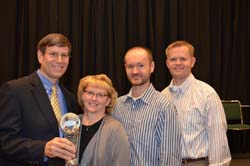 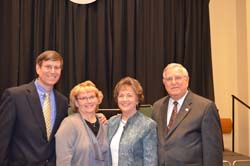
L-R Clint Harris, Punky, Chad & Eric Harris. Clint Harris, Punky Harris, Becky Musgrave, John Musgrave
Sharp Award for Good Causes CeremonyL-R Rebecca Hargrove with Brad Wiebe accepting the award for Western Canada Lottery Corporation for the "Sharpest" increase in a lottery that produces the highest percentage increase in funds transferred to its Good Cause beneficiary. WCLC is tops this year, delivering a 24.25% year-over-year increase.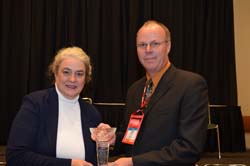
Members of the Lottery Industry Hall of Fame on hand to welcome the new members. L-R James Kennedy, Chief Marketing Officer, Scientific Games, Risto Nieminen, President and CEO of Veikkaus Oy, President of WLA.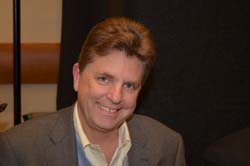 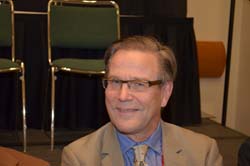
Members of the Lottery Industry Hall of Fame on hand to welcome the new members: L-R Timothy Nyman, Consultant, GTECH Corporation, Tom Little , President & CEO at Intralot USA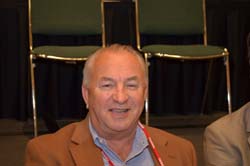 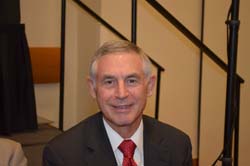
Members of the Lottery Industry Hall of Fame on hand to welcome the new members: L-R Lynn Roiter, Corporate Secretary and Vice President, Legal Affairs for Loto-Quebec, Arch Gleason, President and CEO of the Kentucky Lottery Corporation; Connie Laverty O'Connor, Chief Marketing Officer GTECH Corporation & CEO Northstar Lottery Group. Steve Saferin, Chief Marketing Officer, Scientific Games, Bill Fox, Regional Vice-President Sales, Scientific Games Corp. (All attending Lottery Industry Hall of Fame Members were: Gerry Aubin, Bill Fox, Arch Gleason, Rebecca Hargrove, Jim Kennedy, Connie Laverty O'Connor, Tom Little, Risto Nieminen, Tim Nyman, Lynne Roiter, Steve Saferin.)
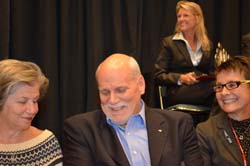 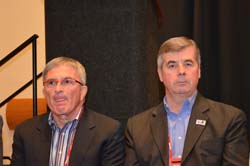
|
Maryland Governor O'Malley urges deficit panel to reject 'federalized' Internet poker
"Historically, states have had the right to make their own decisions about whether to offer gambling and how to regulate the industry, Governor O'Mallley stated." "These proposals would strip states of those rights. In Maryland, for example, federalized poker and casino gambling would put at risk the $519 million annually we generate from our state lottery – our state’s fourth largest source of revenue – and jeopardize the jobs and survival of lottery retailers, many of which are small businesses." click here to see this letter |
|
|
|
Copyright 2011
© PUBLIC GAMING RESEARCH INSTITUTE, PGRI,
INC.. All rights reserved.
|
218 Main
Street #203 Kirkland, WA 98033
susan Jason -Phone - + 425-449-3000 *please
email remove request to sjason@publicgaming.com |
Public Gaming Magazine
October/November 2011
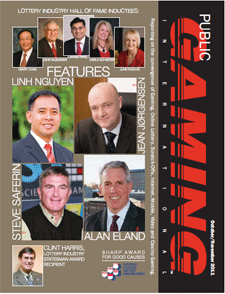
Lottery
|
Sharp Award for Good Causes Ceremony
 Rebecca Hargrove with Brad Wiebe accepting the award for Western Canada Lottery Corporation for the "Sharpest" increase in a lottery that produces the highest percentage increase in funds transferred to its Good Cause beneficiary. WCLC is tops this year, delivering a 24.25% year-over-year increase. Rebecca Hargrove with Brad Wiebe accepting the award for Western Canada Lottery Corporation for the "Sharpest" increase in a lottery that produces the highest percentage increase in funds transferred to its Good Cause beneficiary. WCLC is tops this year, delivering a 24.25% year-over-year increase.
|
Internet,
Mobile
Financial
More Articles...
|


 Paul’s
Wall
Paul’s
Wall